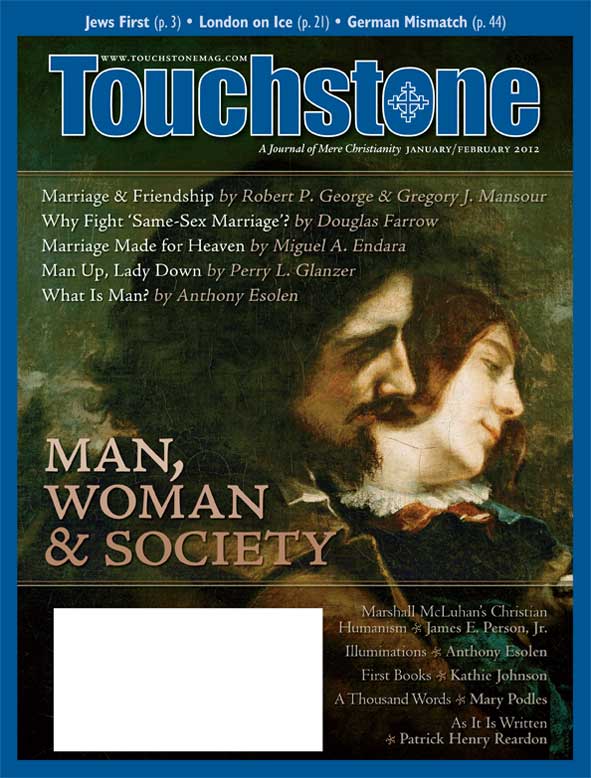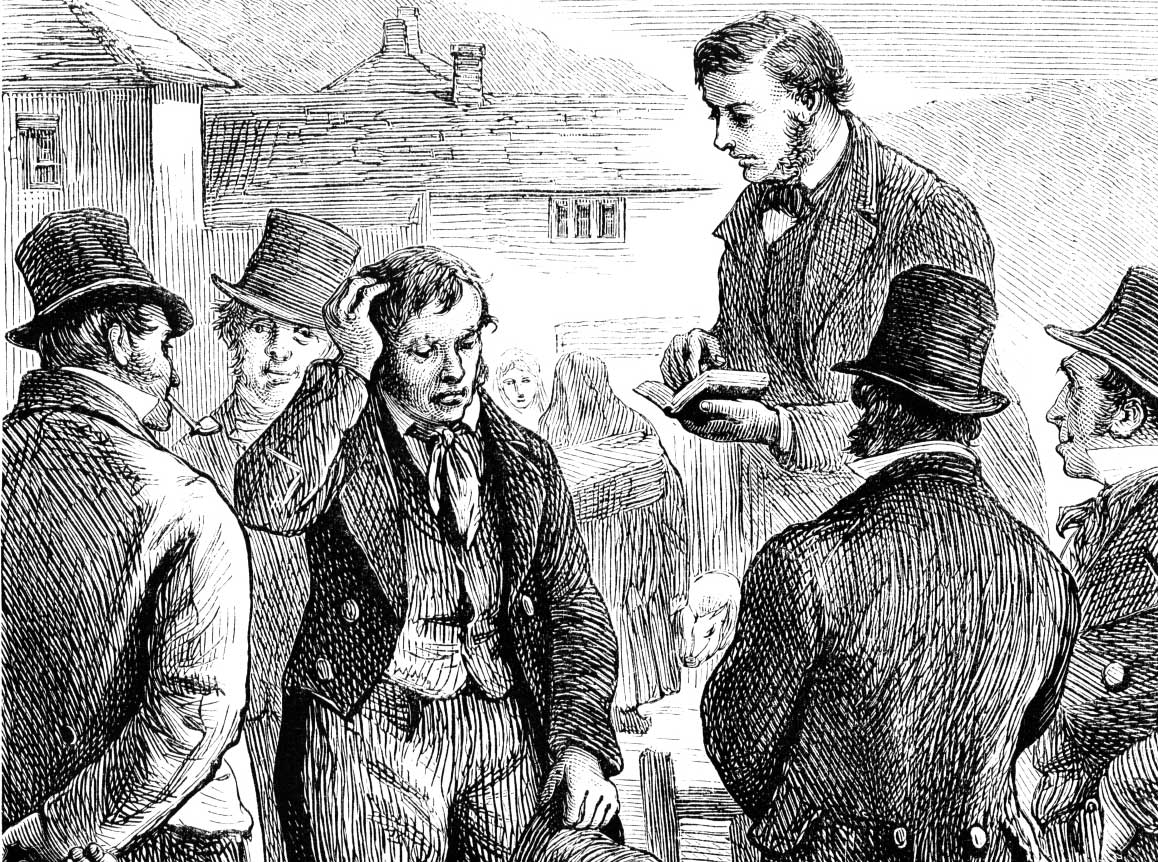Why Fight Same-Sex Marriage?
Is There Really That Much at Stake?
by Douglas Farrow
Why fight same-sex marriage? Even in America, where the outcome is not yet decided, there appear to be good reasons not to. The optics are poor and the mandate seems uncertain. Prospects for victory appear slim. Resources that might be reserved for more important fronts—abortion, for example—are squandered in defense of an institution to which our modern urban society is no longer committed. Industrial economies, reprogenetic technologies, and new ideas of autonomy—not to speak of new moralities—have called into question many of the assumptions on which that institution has always been based.
Moreover, it is perfectly plain to anyone following the fight closely that same-sex marriage is merely a proximate goal—something to be abandoned as quickly as it was invented, when its work is done. Can it really be worth fighting then?
The answer is yes, for reasons that become clear when we have taken account of the work it is meant to do. And what is that work? Positively, to normalize homosexual relationships. Negatively, to de-normalize heterosexual monogamy. (Those who claim that they want homosexual relationships to be more like monogamous heterosexual relationships may or may not be sincere, but they represent no significant constituency.)
Now, some think that this larger project can be left to market forces. But others think that heterosexual monogamy, as the source of widespread discrimination against alternative sexualities and lifestyles, must be repudiated as a social standard. Same-sex marriage is the tool of choice for doing that. By redefining marriage as a union of two (or more) persons, rather than as the union of one man and one woman, the offending norm is removed from the body politic with a single incision. Afterwards, a wider assault on homophobia and heterosexism can follow.

Double-Edged Knife
Tools need to be crafted, of course, and social debates carefully framed. That has already been done with remarkable skill. The knife that is poised to remove the traditional definition of marriage from America has been honed at both edges.
The one edge is shaped by an appeal to our best instincts—the love of liberty, and of liberty in love. This is the emotive edge, flashing with winsome pictures of same-sex families and disturbing anecdotes about marginalization. It also plays on feelings of repression and guilt. As one young woman (quoted in an Associated Press story) put it: “They love and they have the right to love. And we can’t tell somebody how to love.”
The other edge is the harder, more rational edge, shaped by an appeal to autonomy and equality. Not content with the anecdotal, it drives home the case for rights—rights not merely to love as one sees fit but to equal recognition of that love by the state. Hence also to recognition of the wrong, both morally and constitutionally, of the traditional definition of marriage that privileges the heterosexual norm.
Douglas Farrow is Professor of Theology and Ethics at McGill University in Montreal. His recent books include Ascension Theology, Desiring a Better Country, Theological Negotiations, and 1 & 2 Thessalonians in the Brazos Theological Commentary on the Bible.
Share this article with non-subscribers:
https://www.touchstonemag.com/archives/article.php?id=25-01-024-f&readcode=2898
bulk subscriptions
Order Touchstone subscriptions in bulk and save $10 per sub! Each subscription includes 6 issues of Touchstone plus full online access to touchstonemag.com—including archives, videos, and pdf downloads of recent issues for only $29.95 each! Great for churches or study groups.
Transactions will be processed on a secure server.
more on sex from the online archives

28.3—May/June 2015
Of Bicycles, Sex, & Natural Law
Describing Human Ends & Our Limitations Is Neither Futile Nor Unloving by R. V. Young
more from the online archives
calling all readers
Please Donate
"There are magazines worth reading but few worth saving . . . Touchstone is just such a magazine."
—Alice von Hildebrand
"Here we do not concede one square millimeter of territory to falsehood, folly, contemporary sentimentality, or fashion. We speak the truth, and let God be our judge. . . . Touchstone is the one committedly Christian conservative journal."
—Anthony Esolen, Touchstone senior editor












